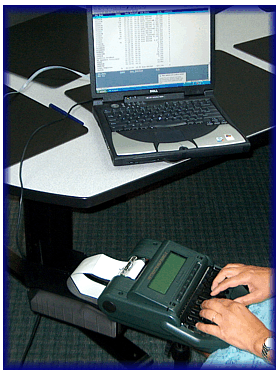 Realtime service is a major key in the world of court reporting and in the age of electronic information, it seems obvious that you should have electronic transcripts delivered to your inbox whenever you need them, with 100% accurate pagination.
Realtime service is a major key in the world of court reporting and in the age of electronic information, it seems obvious that you should have electronic transcripts delivered to your inbox whenever you need them, with 100% accurate pagination.When working with a deposition and litigation services, you need to make sure that your case-specific transcripts, hyper-linked exhibits and other documents are stored in a secure, online document repository.
Having your information stored in online in a searchable and downloadable database gives you easy accesses to your material form anywhere in the world. You can also share accesses to your valuable information with other attorneys and support staff that can make any annotation to be later shared with others working on the case.
And when it is time to go and win that trial, you can download all the docs and exhibits you need and take them along.
Veritext.com provides a highly secure online transcript repository as well as court reporting services, videography and transcription services in New York, California, Florida, Chicago and other areas throughout the United States.





